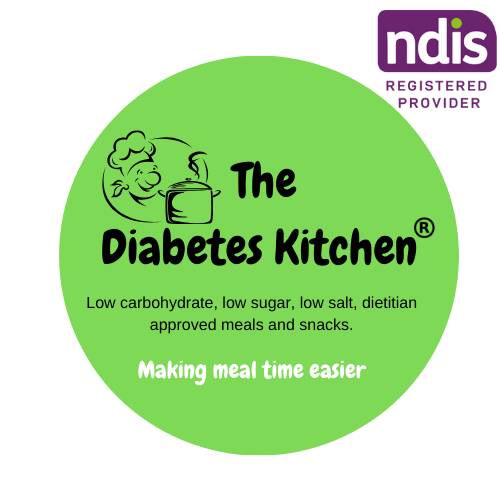How They Work and What They’re Used For
Learn what GLP-1 medications are, how they work to lower blood sugar and support weight loss, and which conditions they are prescribed for.
In recent years, GLP-1 medications have transformed the treatment of diabetes and obesity. Drugs like Ozempic®, Mounjaro®, Wegovy®, and Rybelsus® have become household names, known not only for helping people with type 2 diabetes manage blood sugar but also for their powerful effects on weight loss.
But what exactly are GLP-1 drugs, how do they work, and who are they prescribed for? Let’s break down the science in simple terms.
What Are GLP-1 Medications?
GLP-1 stands for glucagon-like peptide-1, a naturally occurring hormone produced in the gut after you eat. This hormone helps regulate blood sugar and appetite.
GLP-1 medications are synthetic versions or analogues of this hormone. They mimic the effects of GLP-1 in the body, helping to:
-
Lower blood sugar levels.
-
Promote a feeling of fullness (satiety).
-
Reduce appetite.
-
Support weight loss.
These medications are typically given as injections once a week (such as Ozempic® or Mounjaro®), though some newer forms like Rybelsus® are available as oral tablets.
How GLP-1 Medications Work
GLP-1 receptor agonists (the technical name for this drug class) work through several mechanisms that target both blood sugar control and appetite regulation.
1. Increase Insulin Production
After a meal, GLP-1 stimulates the pancreas to release insulin — but only when blood sugar is high. This helps the body move glucose out of the bloodstream and into cells for energy.
2. Reduce Glucagon Secretion
Glucagon is another hormone made by the pancreas that raises blood sugar. GLP-1 medications suppress excess glucagon, preventing unwanted spikes in glucose levels.
3. Slow Stomach Emptying
GLP-1 drugs slow down how quickly food leaves the stomach, helping you feel full longer and preventing sharp rises in blood sugar after eating.
4. Affect the Brain’s Appetite Centres
GLP-1 acts on the hypothalamus (the brain’s appetite control centre) to reduce hunger signals. This is why many patients notice a natural decrease in food cravings.
Together, these effects result in better glucose control, weight reduction, and improved metabolic health.
Conditions GLP-1 Medications Are Prescribed For
1. Type 2 Diabetes
GLP-1 medications were originally developed to treat type 2 diabetes. They are often prescribed when lifestyle changes or first-line medications like metformin aren’t enough to control blood sugar.
Benefits for people with type 2 diabetes include:
-
Lower average blood glucose (HbA1c) levels.
-
Weight loss or weight stabilisation.
-
Lower risk of hypoglycaemia (because they act only when glucose is high).
-
Improved cardiovascular outcomes — studies show some GLP-1 drugs reduce the risk of heart attack and stroke.
2. Obesity and Weight Management
More recently, GLP-1 medications have been approved for weight loss in people without diabetes.
Drugs like Wegovy® (semaglutide) and Mounjaro® (tirzepatide) have shown dramatic results in clinical trials, with average weight reductions of 10–20% of body weight over a year.
They are usually prescribed for adults with:
-
A BMI of 30 or higher (obesity), or
-
A BMI of 27 or higher with a weight-related condition (such as high blood pressure, high cholesterol, or pre-diabetes).
3. Cardiovascular Risk Reduction
Certain GLP-1 medications, particularly semaglutide (Ozempic®) and liraglutide (Victoza®), are also approved to help reduce the risk of major cardiovascular events — heart attack, stroke, or death — in adults with type 2 diabetes and existing heart disease.
Common Side Effects
While generally safe and well tolerated, GLP-1 drugs can cause some temporary side effects as the body adjusts, including:
-
Nausea or mild vomiting
-
Bloating or indigestion
-
Constipation or diarrhoea
-
Reduced appetite
These usually lessen over time. To minimise them, doctors often start with a low dose and increase gradually.
Serious side effects are rare but can include gallbladder issues or pancreatitis. Patients with a personal or family history of certain thyroid cancers (medullary thyroid carcinoma) are usually advised to avoid GLP-1 drugs.
Are GLP-1 Medications Right for You?
These medications aren’t a one-size-fits-all solution. They are most effective when combined with healthy eating, regular exercise, and medical supervision.
If you have type 2 diabetes, pre-diabetes, or obesity, your doctor may discuss whether a GLP-1 receptor agonist could be beneficial for you. They will weigh the benefits (blood sugar and weight control) against possible side effects and cost.
The Bottom Line
GLP-1 medications represent one of the most important advances in diabetes and obesity management in decades. By mimicking a natural hormone, they help the body control blood sugar, reduce appetite, and promote sustainable weight loss.
From managing type 2 diabetes to supporting heart health and combating obesity, GLP-1 drugs are reshaping how doctors approach metabolic diseases — offering hope to millions seeking long-term control and improved quality of life.





